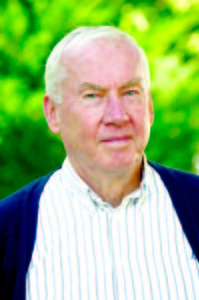Small World: Democracy’s ills and remedies
By Henry Precht
BN Columnist
It all started, I guess, with the mania for testing that has gripped our school systems these past few years. Numbers mean everything; whether you want to move to the next grade, graduate, win a scholarship, prosper and live happily ever after, your score is a big piece of your ticket.
The same fixation has affected the schools that administer the tests. Would one be designated a failed institution or a high-achieving operation? Will more funds appear in the future or, rather, rejection and closure? Likewise for the teachers: up or down, depending on the count.
And now the epidemic for keeping score has infected national politics. The first arena for studying personal numbers is the multi-year collection of IRS returns from presidential candidates. It used to be that those numbers were very private, utterly personal. How much you or your relatives or friends earned just wasn’t discussed — whether from shame or to fend off borrowers, or simply because it was none of their business. It just wasn’t a topic of conversation,
That’s not how political pundits view tax returns now. For them, they are troves of juicy information. How much did you make and from which sources? How much did you give to charity? From what government tax breaks did you benefit? And do the numbers accurately depict the behavior you say guides you or are you masking the realities of your life? A man is what he eats, they used to say; now they say he is what he earns.
But, hold on! Another scorecard has entered the fray: a candidate’s medical records. We are still at an early stage with this data artery; therefore no one has worked out a form to facilitate comparisons between candidates. That will come, to be sure. Meanwhile, we will have to rely on personal physicians’ descriptive talents which will, following present customs, probably not reveal the essential facts the new media-mania demands: Which candidate is more obese? Who has the wobbliest bones, the highest blood pressure, the fastest heart beat, the shortest staying power? Without such data, we would be back to picking a president based on wholly subjective criteria.
And, yes, there’s one more entry in the grading process: how large and accurate is a candidate’s store of knowledge? The need for this new quiz regarding general information was highlighted recently by one candidate’s inability to identify the battleground city of Aleppo in Syria. It used to be that anyone entering government service — except those using the ballot as a ticket — had to pass a general knowledge exam. It would seem essential that the person who represents us with elite foreign and domestic leaders would be able to hold up his or her end of the conversation. Accordingly, a wide-ranging test of a person’s understanding of geography, history, literature, the sciences and — not to be forgotten — civics, should certainly be one of the hurdles that a candidate must overcome.
Let’s see, that leaves only one additional test that a candidate should be subjected to — a psychological examination. How does he or she read a Rorschach test? Does an inkblot conjure up for him or her frightening and warlike images where normal folks see flowers? Maybe a more useful scrutiny would be to have the candidate stretch out on a couch and open up to a psychiatrist. The resulting findings would be important material for voters’ evaluations.
You can see at this point that the score-registering mania will take up a tremendous amount of time. However, it might be more accurate for picking out the best person than the highly subjective approach now in use. There is, of course, another, somewhat obsolete means of selection (rather rejection) and that would be violence. Not too many years ago, and in some places even now, the way to change regimes would be to eliminate the leader.
The Lord forbid, however, that we return to the days of the royal Stuarts, Lincoln, McKinley or Kennedy or various Middle Eastern and other vote-free locales. Better to laboriously count qualities or even to back a ballot with mere guesswork.
Henry Precht is a retired Foreign Service Officer.Â



